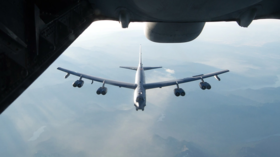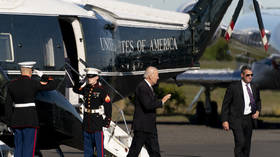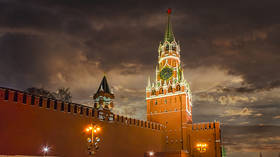NATO prepares for nuclear drills

NATO has confirmed that it’s sticking to plans for its annual nuclear drill, even as the escalating Russia-Ukraine conflict spurs fears of a direct and catastrophic confrontation between Moscow and the Western military bloc.
“This is routine training, which happens every year, to keep our deterrent safe, secure and effective,” NATO secretary-general Jens Stoltenberg told reporters on Tuesday. The exercise, known as Steadfast Noon, will be held next week. It typically brings together dozens of aircraft from member nations and practices a nuclear strike mission. The jets typically don’t carry live warheads.
US President Joe Biden warned last week that Russia and the West face a greater threat of nuclear “Armageddon” than at any time since the Cuban Missile Crisis 40 years ago. President Vladimir Putin has vowed that Russia will use “all the means available to us” to defend its people and territory – a statement that Washington and its NATO allies have interpreted as a threat to deploy nuclear weapons.
Asked whether the 30 NATO members had discussed the potential for the Steadfast Noon drill to cause a miscalculation amid heightened tensions with Russia, Stoltenberg dismissed such concern. “Now is the right time to be firm and to be clear that NATO is there to protect and defend all allies. And this is a long-time-planned exercise, actually planned before the invasion of Ukraine.”
The secretary-general added that it would send a “very wrong signal” if NATO canceled the nuclear drill because of the Ukraine crisis. “We need to understand that NATO's firm, predictable behavior – our military strength – is the best way to prevent escalation. We are there to preserve peace, to prevent escalation and prevent any attack on NATO-allied countries.”
So if we now created the grounds for any misunderstanding, miscalculation in Moscow about our willingness to protect and defend all Allies, we would increase the risk of escalation, and that's the last thing we will do.
NATO’s preparedness to defend against any attack deters nuclear threats, Stoltenberg said. “This was important before the invasion of Ukraine, it has become even more important after, not least in light of the nuclear rhetoric from President Putin and from Russia,” he added.
Last week, Ukrainian President Vladimir Zelensky demanded that NATO carry out preventive strikes on Russia to deter the use of nuclear weapons. After Moscow accused him of trying to spark a third world war, Zelensky walked backed the statement, claiming it was mistranslated and that he really meant to say preemptive sanctions, not “preemptive strikes.”
The alliance is closely monitoring Russia’s nuclear forces and hasn’t seen any changes in their posture, Stoltenberg said. He added that NATO ministers will make decisions on Wednesday to increase weapons stockpiles. Media reports in recent weeks have indicated that members of the bloc are struggling to procure weapons quickly enough as aid to Ukraine depletes their supplies. The German Army, for instance, has enough ammunition for only one or two days of warfare, Business Insider reported on Saturday.















